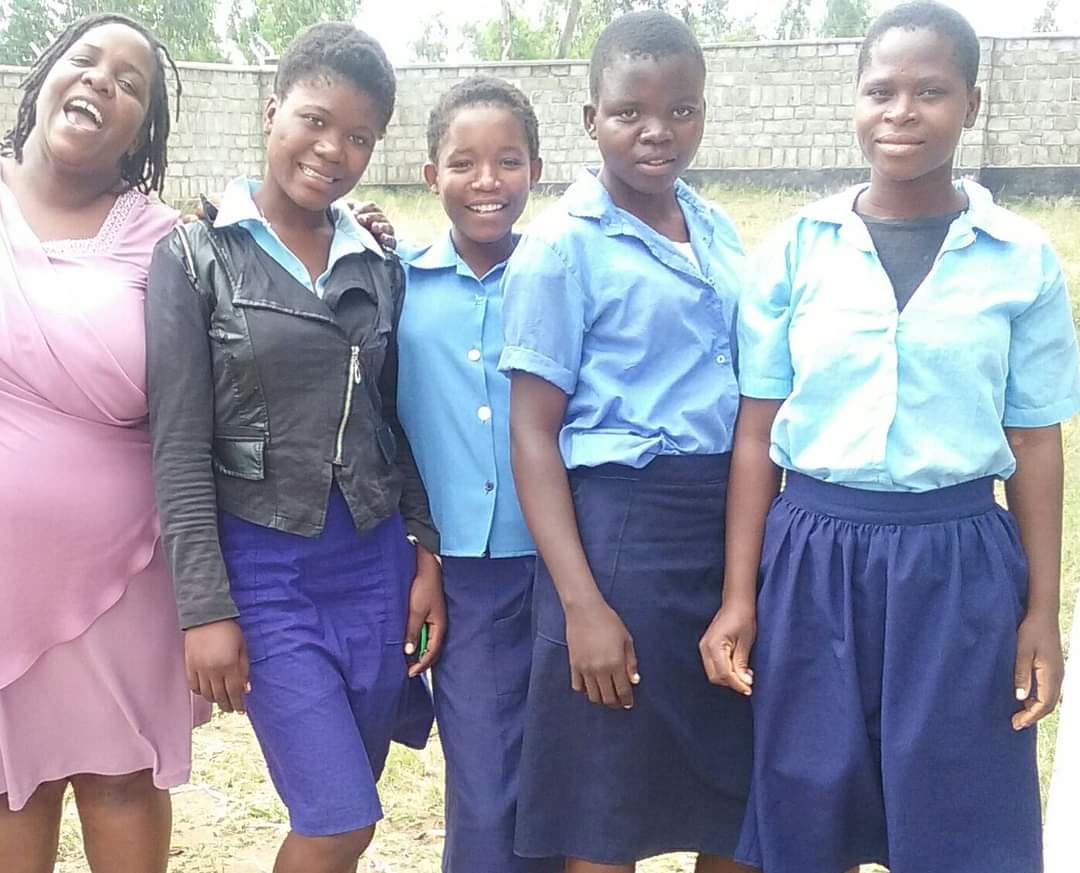Improving Secondary Education with ISEM
The inability of parents to afford school fees has stifled the dreams of countless children.
KASUNGU, Malawi - The harsh reality of poverty has long been an insurmountable barrier to education for many students in Malawi, with young girls disproportionately affected by high dropout rates, writes Howard Mlozi.
The inability of parents to afford school fees has stifled the dreams of countless children.
However, the European Union's (EU) 'Improving Secondary Education in Malawi' (ISEM) program, implemented by partner organizations, is slowly reshaping this narrative, offering a glimmer of hope for the country's youth.
In 2020, the lives of Asimenye Mughogho and Agness Alfred were transformed when they were selected to pursue higher education at the University of Malawi.
Asimenye is pursuing a Bachelor's Degree in Physics, while Agness is working towards a Bachelor's Degree in Education in Humanities and Arts.
Their remarkable journey is a testament to the ISEM program, particularly the contribution of the Girls Empowerment Network (Genet), which has been instrumental in its implementation.
Among the myriad benefits of the ISEM program, the two young women received bursaries, participated in leadership and life skills training, and received awards and incentives during their time at Chankhanga Community Day Secondary School (CDSS) in Kasungu.
Agness Alfred, now in her third year at university, recollects her struggles growing up under the care of a single parent.
The burden of school fees nearly snatched her dreams away until the ISEM bursary program, administered through Genet, came to her rescue.
"The bursary program motivated me to stay in school. And this saw my performance improving tremendously. For example, I started scooping awards for emerging position one in class," disclosed Agness.
With her education back on track, Agness aspires to become a teacher, committed to inspiring other vulnerable girls to persevere in their educational journey.
"I am a product of other people's motivation and generosity. Had it not been for the bursary and other motivation activities under the ISEM program, I would've dropped out of school. So, I want to give back to the community when I complete my education," said Agness, highlighting the program's transformative effect.
Asimenye Mughogho, a 20-year-old student, shared a similar path.
Raised by a single mother who sold salt at Kasungu market, Asimenye was identified as one of the ISEM program's beneficiaries through Genet at Chankhanga CDSS.
Participating in girls' summer camps organized under the ISEM program exposed Asimenye to inspirational young women who had triumphed over humble beginnings.
These encounters, including the guidance of individuals like Chanda Manda, ignited her determination to excel.
"During girls' summer camps which Genet used to organize under the ISEM program, I met several inspiring young women like Chanda Manda, who came from a humble background but made it in life and who motivated me to work hard," said Asimenye.
The life skills imparted during these camps, focusing on goal-setting, self-esteem, and essential life skills, served as a catalyst for Asimenye's academic success.
Her remarkable performance in the Malawi School Certificate of Education (MSCE) exams earned her a coveted spot at the University of Malawi, where she is pursuing a Bachelor's Degree in Physics.
Empowered by the ISEM program, Asimenye dreams of an inclusive future where girls from rural areas can aspire to higher education and overcome the challenges posed by peer pressure, poverty, and harmful cultural practices like forced marriages.
"Apart from poverty, which affects our households and prevents many from proceeding with their secondary or tertiary education, most rural schools are under-resourced, a development that affects the learning outcomes," lamented Asimenye.
Agness and Asimenye are among over 2,300 students in Malawi who have benefited from the bursaries offered through the ISEM program.
"We are grateful for the strides we have achieved under the ISEM program, as many vulnerable girls have been enabled to access secondary education," remarked Faith Phiri, the executive director of Genet.
The ISEM program, operational for the past three years, has demonstrated incredible results. Faith Phiri recommends that the bursaries be continued and expanded to other government and non-government organisations, given the tangible results achieved.
"School bursaries and girls' empowerment programs, such as summer camps and other motivation activities, play a crucial role in keeping girls in school. Life skills sessions prepare girls to handle sexual pressure and fight against forced marriages, empowering them to realise their full potential and the benefits of delaying early marriage and pregnancy," emphasised Phiri.
Furthermore, experts contend that households with better socio-economic status are more likely to support their children's education.
Therefore, the promotion of programs that enhance household socio-economic status in rural areas is crucial to ensuring that families are financially capable of supporting their children's education.
The ISEM program stands as a beacon of hope, dispelling the shadows of poverty and empowering young girls to reach for the stars.



